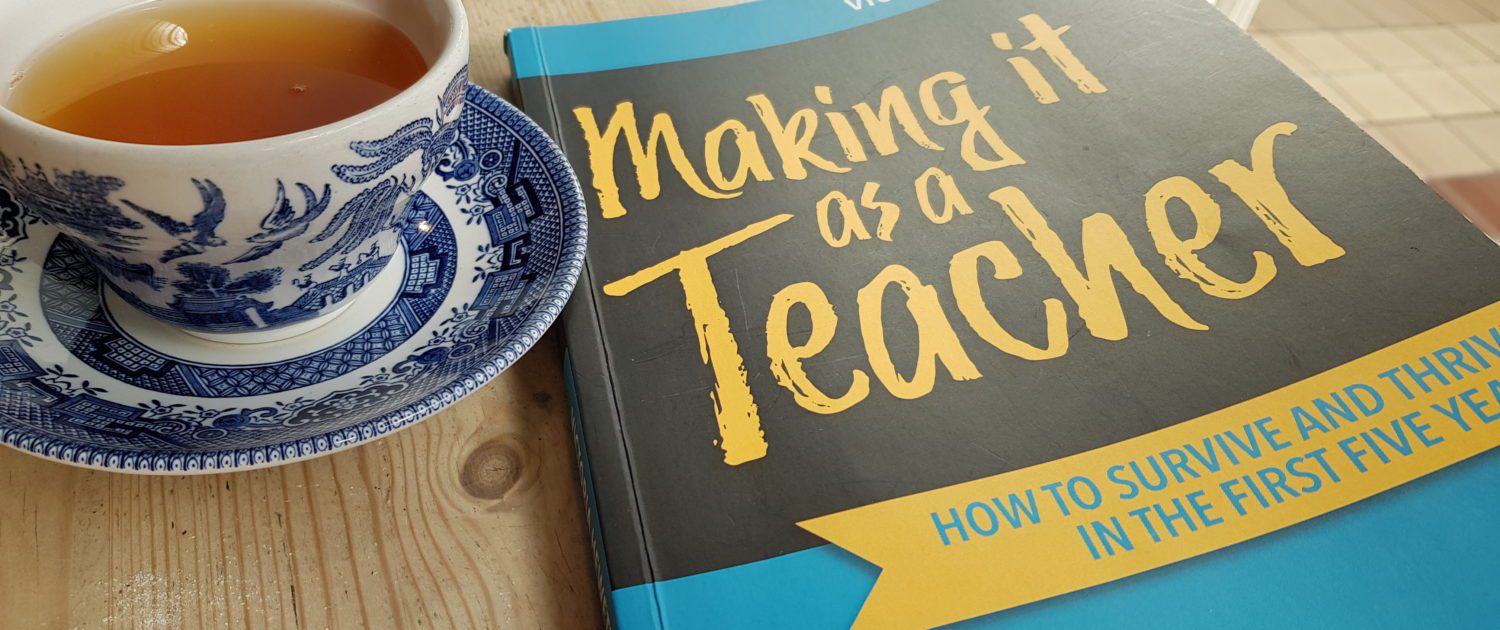


Being a teacher is fulfilling. It’s an ever-changing career, that inspires and educates. But it’s also exhausting, mentally and physically.
Often those outside of the profession only see the 13 weeks of holiday, a 9 am – 3:30pm day and then a few INSET days thrown into the mix, leaving some to ponder why we struggle at all. Many do not see the burdens placed on schools, senior leaders and teachers; not only do we seem to be trying to teach the next generations the knowledge and skills they need for a successful life, we’re also being asked to play a huge societal role without the budgets and funding.
It’s no surprise then that so many leaders and classroom teachers, both new and experienced face burnout at some point in their career. I was one of those.
I thought that burning out, experiencing a breakdown and accepting that I have mental health challenges would be the end of my career in teaching; I hated the job, I was an emotional wreck and I couldn’t think logically. For me that indicated the end of 4 years as a teacher. I couldn’t and didn’t want to do it anymore.
It turns out though that you can go through all of the above and still find a love for teaching. How I hear you ask?
During my time of crisis, I contacted the Education Support Partnership and realised that it wasn’t necessarily the profession that had broken me. After much encouragement I found the confidence to give one more school a try and it worked out. Changing schools taught me that the school can make all the difference; today I feel like I’m thriving, I feel supported and I love what I do on a daily basis.
What else did I learn from burning out?
Lesson 1. Teaching is a job, not a lifestyle.
Initially I saw myself as a teacher before anything else, now I recognise it’s a job and that’s all it is. It’s an important one, but it shouldn’t control my life outside of work, I had to stop putting teaching before me.
Realising that there is only so much I could do in the time I had and that I couldn’t and mustn’t dedicate every waking minute to the job was a hard realisation. But we must look after ourselves, because if we are to look after and provide the best education for our students, we have to spend time refuelling and looking after our health and wellbeing too.
Take time doing the things you enjoy; spend time with family and friends, get outside and enjoy the world. Plan your holidays and weekends in advance so you’re not tempted to just work. Remember to give yourself a break.
Lesson 2. Sometimes you have to say no.
As an early career teacher, no wasn’t in my vocabulary. I thought I had to agree to do everything that was asked of me. I also couldn’t say no to myself; the fear of scrutiny and failure was too much so I just kept going and going.
After burning out I realised that you have to say no! You physically can not do everything.
When you want the best for those around you, it can be hard to say no to things. But it is okay to say you can’t do something, whether it’s due to limited time, an already huge to-do list or the limited impact it will have on student outcomes; sometimes you just have to say “sorry, I can’t do that”.
Try to be selective in what you agree to contribute towards or do that’s additional to your job description. Is it something that is of interest to you? Will it develop your practice? Will it be helpful to a colleague? Think carefully about requests.
Be strict with your lunch and breaks, always make time for yourself. For instance, I only meet with students if they have signed up for a meeting in advance, I always have 20 minutes of me time.
You have to learn to say no to yourself. Be strict and consistent, set yourself time frames and organise yourself.
Learning to say no to myself and to others was hard initially, however, it has been essential for my health, wellbeing and even sanity at times. Allow yourself that.
Lesson 3. You can still be a great teacher with mental health challenges.
Once I started talking about my mental health experiences, I was opened up to a world I never really knew existed; the world of great teachers with mental health challenges, they exist in every school!
I may still suffer from anxiety and I may experience bouts of depression, but what I’ve come to realise is that doesn’t make me a bad teacher. In fact, the one thing I’ve discovered is that by better understanding my mental health, I’ve become more aware of the mental health of others and have been able to support colleagues and students in a way I never could or would have in the past. I now have the ability to find the words to talk to students about how stress, anxiety and depression feels, I recognise the signs of potential negative mental health experiences and have been able to suggest ways to look after ourselves, both physically and mentally.
Lesson 4. Workload can be reduced.
For a while at my last school I worked towards reducing my marking workload by introducing a variety of feedback strategies that still allowed me to meet the expectations associated with performance management.
When I moved schools in September 2016, I continued many of those strategies and implemented a variety of other workload reducing approaches to my day-to-day school life. In doing so I was able to cut my workload, whilst part of that has been the result of systems in place at the school, it has also been a result of my own efforts to simplify what I do.
You can find many of these strategies in ‘Making it as a Teacher’.
Lesson 5. Burnout doesn’t have to be the end.
If you reach burnout out, honestly it doesn’t have to be the end of your time in the profession. It just means you might have to step back for a little while. Whether that means taking time off, relinquishing a responsibility or changing schools, it is possible to continue a successful teaching career.
After my experience of burnout, I was torn between moving out of teaching or trying another school. During my time off, I reassessed my situation and realised it wasn’t the profession making me unhappy and so I was encouraged to apply to one more school. I panicked it would be more of the same; relentless workload, high expectations and limited support so at the interview I asked how they support staff wellbeing and was pleased with the response.
If you’re applying elsewhere after a period of burnout, don’t worry. If a school is worth working in, they will understand your experiences and will not hold it against you. Be honest, as it’s the only way to reduce the stigma surrounding it.
Overall, whilst burning out was a challenging experience, it taught me a great deal, it made me a better teacher and gave me a love for the profession that I never experienced before.
To read more on Victoria’s experiences and advice on tackling workload visit her blog, MrsHumanities.com, follow her on twitter (@MrsHumanities) and check out her book ‘Making it as Teacher’ available here.